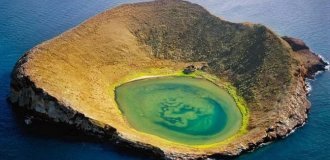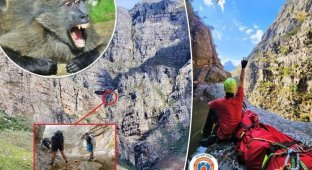Waffle stone from Lake Jennings - the talent of the ancients, the creativity of aliens or the jokes of higher powers? (6 photos)
It seems that modern people are already so sophisticated that it is difficult to surprise them with anything. But nature manages to periodically throw up a couple of riddles that make you rack your brain. 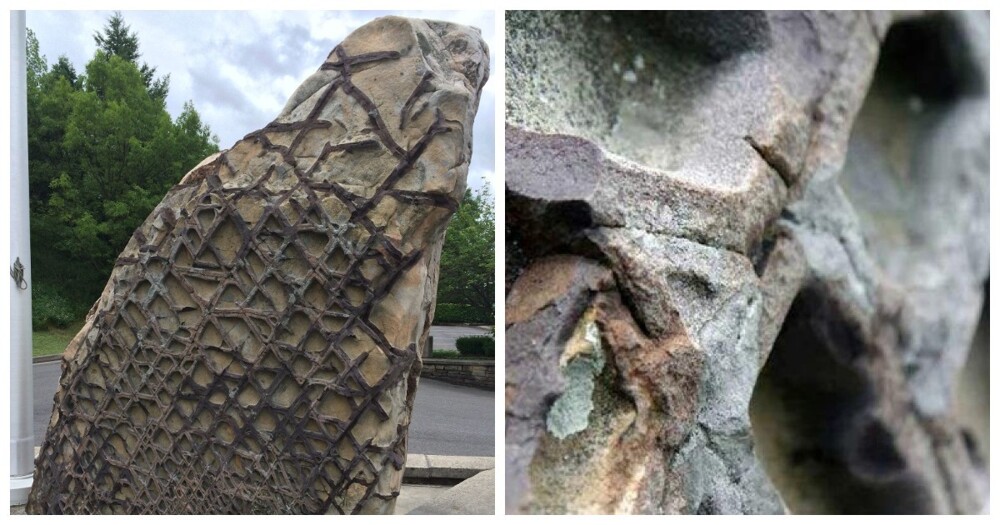
One of these is the Waffle Stone, discovered in West Virginia near Lake Jennings Randolph. The find puzzled researchers with its unusual surface, which really resembles a freshly baked waffle. 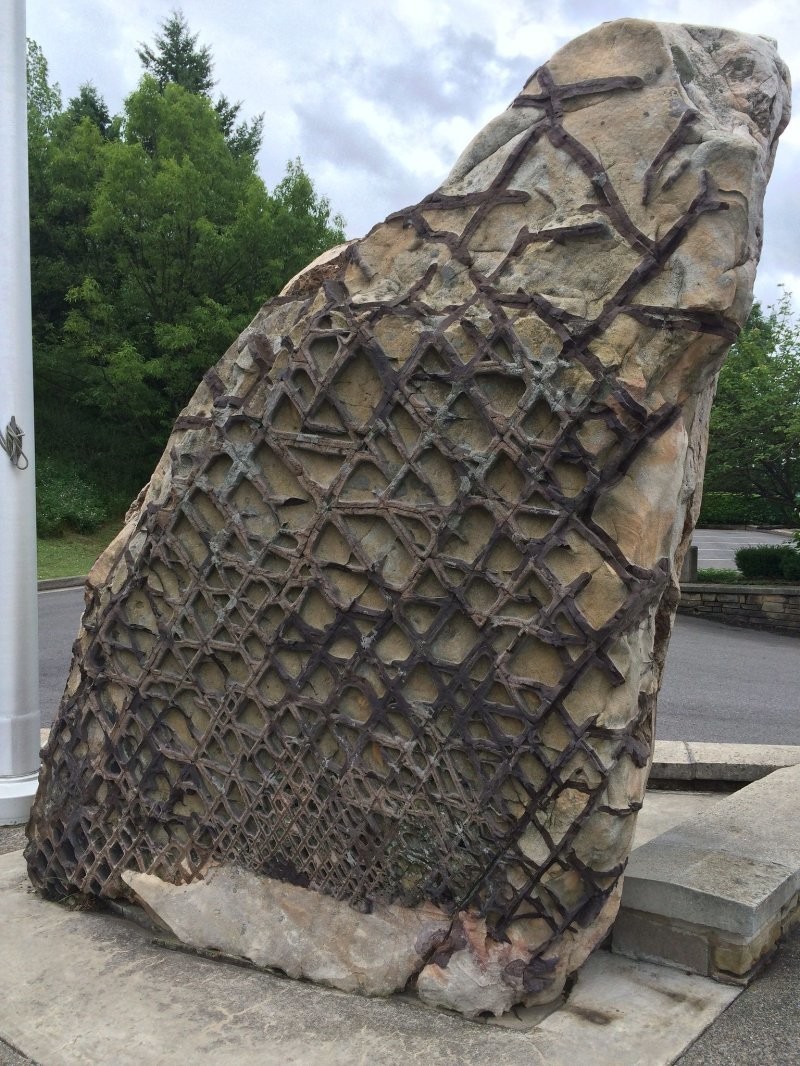
The first mention of the block dates back to 1930. It was then that engineers working on the construction of a dam on the Potomac River stumbled upon an unusual block with a geometric pattern. Although there is a version that they knew about the stone long before construction. It was discovered by the family of a local ranger, who considered the boulder to be the heritage of one of the local tribes.
Ideally drawn parallel lines and a smooth surface make one doubt that the piece of rock is the result of the elements. So what exactly is a rock wafer?
Versions and assumptions 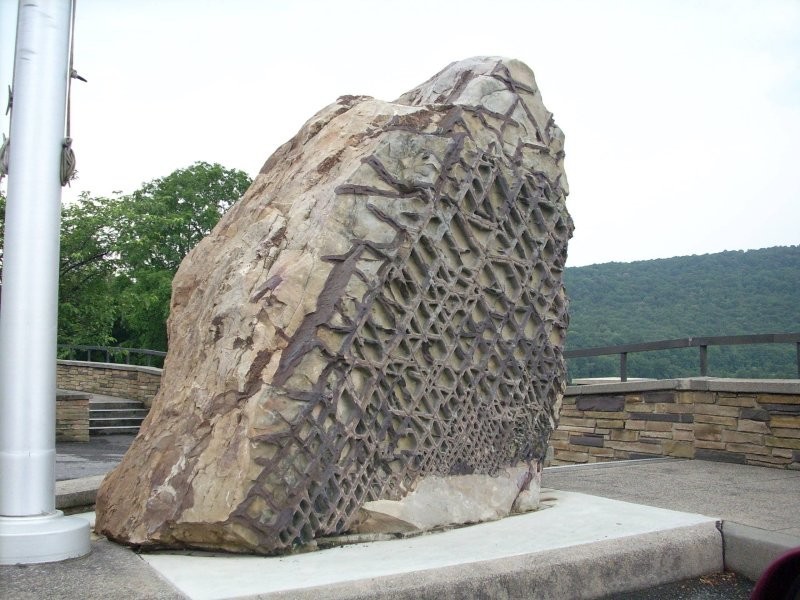
The first hypothesis regarding the origin of the find was put forward by the head of the corps of engineers, Colonel Martin Walsh. He suggested that when the active process of formation of the local relief was underway, shells, sand, small stones, crustaceans were welded together, forming a monolithic slab. In some parts, the sand was washed out and woke up, which was the reason for the appearance of such an ornament. 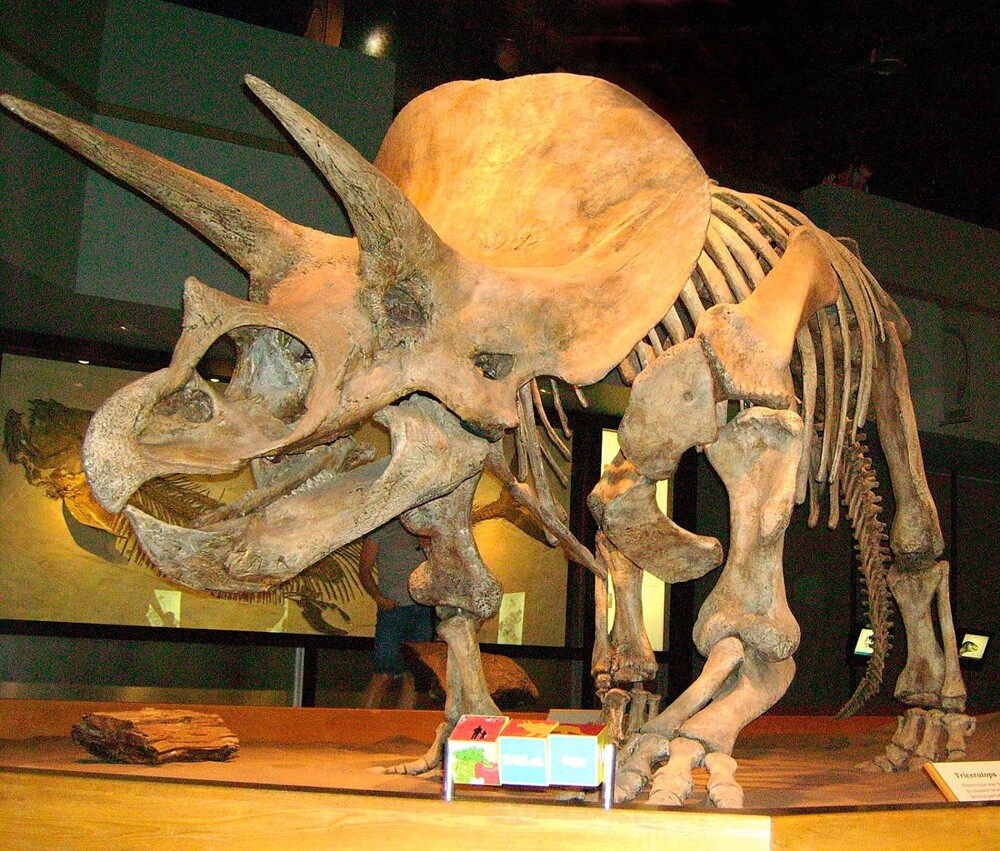
Triceratops skeleton
There are other versions that explain the origin of the pattern. This is the effect of magnetic fields, and the result of the work of an ancient civilization, and the imprint of the Triceratops dinosaur. 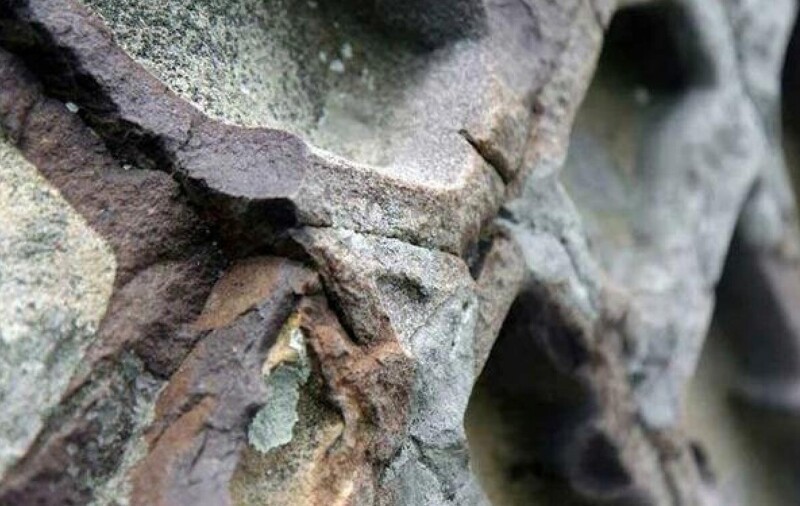
Astronautics theorists do not rule out that the imprint could have been left by a spacecraft. They are supported by ufologists who believe that the signs are the result of radiation caused by the landing of aliens.
A piece of rock with an unusual pattern continues to keep its secret, causing more and more new versions and speculations. 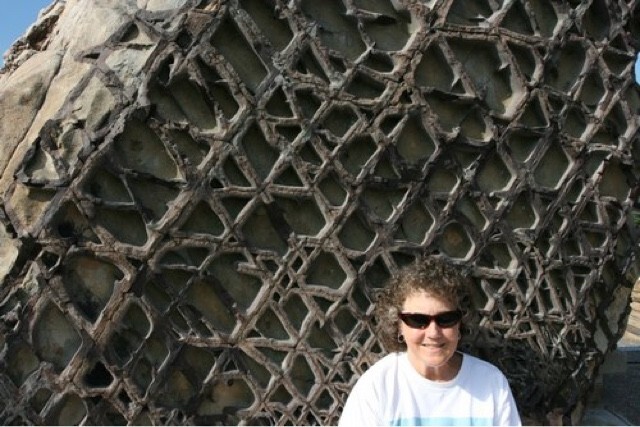
What do you think could be the reason for the appearance of such an unusual waffle pattern on the rock?








